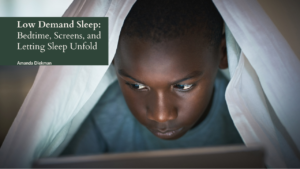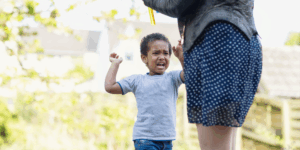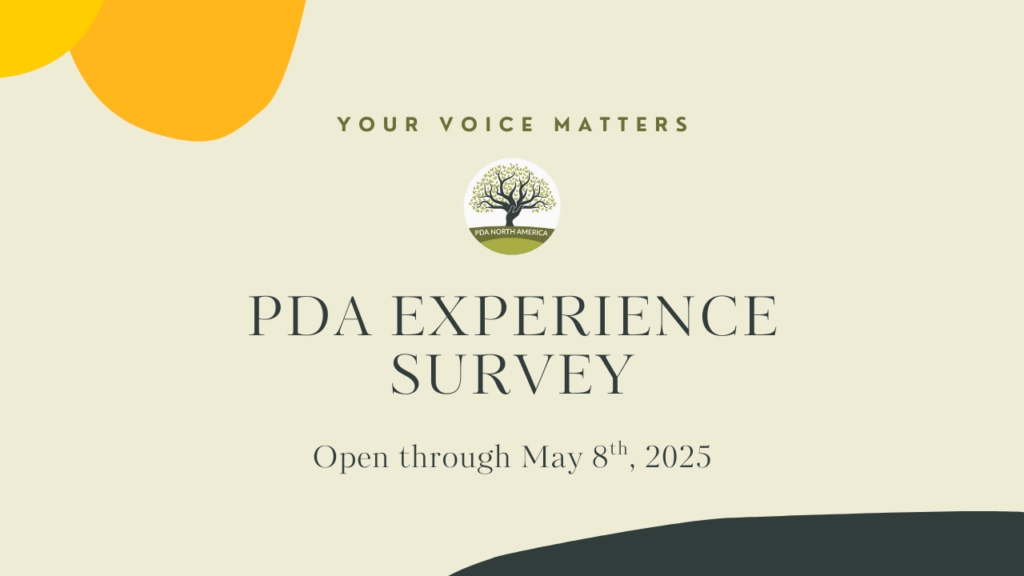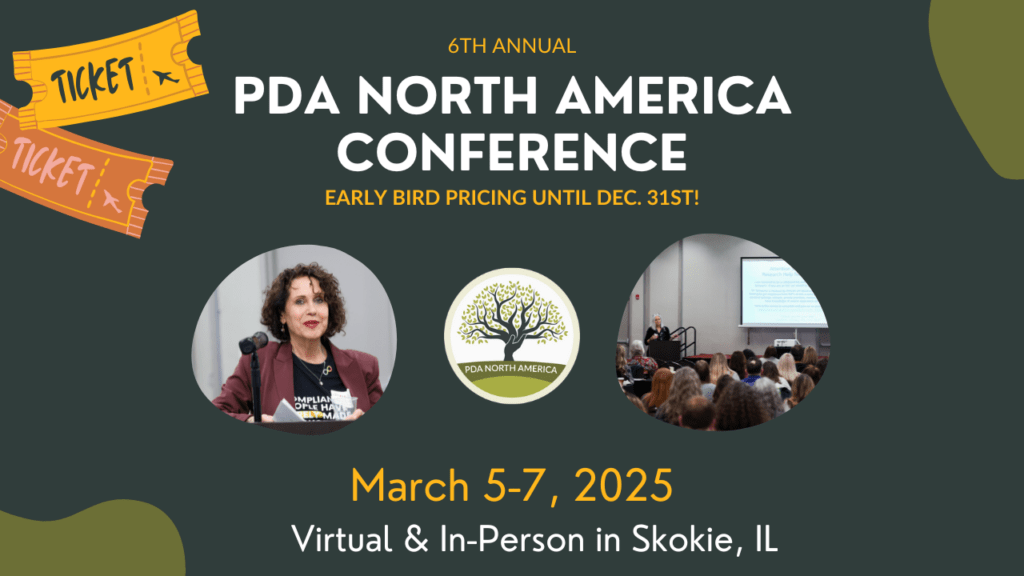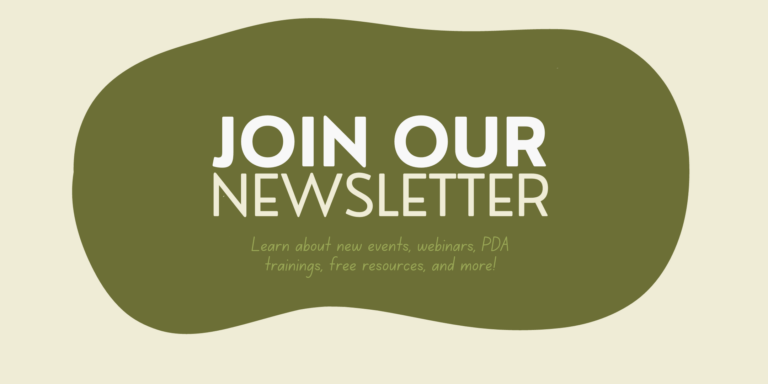By Julie Vavaro
Julie Varvaro is the mom and wife to three on the spectrum, two PDAers, and is possibly on the spectrum herself, with an extensive background in education, philosophy and community organizing. She left academia to raise children, and in her free time she volunteers on boards and commissions and can be found either reading, baking or gardening.
When our oldest was 2, and playgroup friends began enroll their children in “pre-school,” I started a weekly cooperative, play-group in homes. A few years later, in 2012, I founded Life-Long Exploration and Play (LEAP), an unschooling cooperative. The idea was simple: to build a community around the values of life-long exploration and play.
It was a crazy bunch of people, many of whom unschooled to avoid “labels” and to just radically accept their child as they were. Most children had never been in school, there may have been one or two that attended preschool, but these were kids that were allowed to just be kids. Some did some “schooling,” but over the years, it became a co/op filled with those of us who followed “unschooling.”
John Holt said that unschooling is “allowing children as much freedom to learn in the world as their parents can comfortably bear.” At its heart, unschooling is the belief that natural curiosity propels learning and development, and much like babies learning to crawl, learning itself is a natural process in a supportive and enriched environment. And I can attest that all three of my children learned to read without any formal curriculum or teaching: they couldn’t help but learn to read in a world covered with words.
Schools, in fact, are rather new human inventions that aim to socialize rather than to educate. They aim to teach the norms and values of society and prepare children for adult economic roles.
Education, on the other hand, at its base, its Latin root, means to draw out, bring forth, to lead. It means the extension and expansion of self. Unschooling, as a philosophy of education, believes that children will naturally learn and develop those skills necessary for their own lives. In fact, many unschooling families consider themselves life-long learners because you cannot help but learn. In fact, Sandra Dodd has a yearly holiday every year daring people not to learn anything that day!
We are creatures programed for learning —if you get out of the way, allow curiosity and play to guide the process, engaged, active and meaningful learning will naturally take place.
Organized Chaos
When a family in our small in-home co/op decided to send their child to preschool, I advertised the idea of a co/op to our playgroup website. I invited other families to a park day and tried to sell them on the idea of building a community around the values of exploration and play (curiosities handmaiden)
It began with 8 families but quickly stabilized at 12-13 families (depending on the number of kids.) It was run out of a lovely park district building that had a kitchen, two playgrounds, a basketball court, a lake, and a woodland that would flood in winter and make for amusing winter fun. The best part was a massive pine tree that turned into a rite of passage for being considered an “older kid,” as it was the perfect climbing tree.
The philosophy of the school was simple: we will put out activities and the kids are free to do them or not. In unschooling, this is called strewing. In fact, when I explained its philosophy to interested families, I would mention the pine tree and say that the kids are as welcome to spend their time climbing it as inside the building doing activities. We once had a family that wanted “timed rotation” for the activities, and I had to spend 2 hours explaining how it went against the very idea of play as flow and self-guided interest.
When what became a good friend first joined, she didn’t believe that it would truly be run this way. It was “organized chaos:” We aimed to provide enough activities and resources to prevent the kids from what I liked to call “destructive boredom,” i.e. throwing things, chasing in a crowded space of people, etc.
Child-led, cooperative organization
At its end stage (just before the pandemic), groups of parents would be sorted into “organizational” teams. Parents in consultation with their children would select themes they were interested in. The whole group would then vote on enough themes to cover the semester, and then the organizational teams would select which weeks they were responsible for organizing.
Unlike “school subjects,” our themes were things like “messy art and science,” “deconstruction lab” (where we would find broken electronics and let the kids take them apart). Once we added “smash lab” to deconstruction lab as someone had lots of pumpkins and left over squash from their summer garden yield. We usually did “cooking” once a term, and once a year we would do ballistics and get out a potato launcher an engineering dad and mom built. And we usually did one crazy scavenger hunt a year that got started by me doing a hunt for Medusa when my son was obsessed with Greek Myths.
It was fun. The kids loved it, and two of my kids still live for their bi-monthly get together with kids they have known for over a decade, and every Friday at 5:00pm about 10 of them do D&D on their Discord channel.
The aim was to inspire curiosity and engagement with the world. Before it dissolved, the co/op had turned into a bi-weekly co/op with field trips on the off weeks (us parents were too overwhelmed by the demands of a weekly co/op). The same group would also meet weekly to explore forest preserves, giving the kids a chance to just run wild and free. But in the end, on a regular basis (2-3x a week), our children had an opportunity to explore and play with their friends.
It wasn’t perfect, but it provided our homeschooled children with enriched social interactions and the opportunity to build life-long friendships in a safe and accepting environment. It also wasn’t for everyone, but over time, we collected a stable 13 families that all shared similar philosophies of education and put acceptance and nonjudgment front and center. Put simply, it aimed to meet each person where they were and to be kind to them on their journey called life. If this meant you didn’t wear shoes, so be it. If this meant you pace back and forth while talking, so be it. If this meant you look down when concentrating, so be it. The rules were simple:
- Please walk and be respectful of the space of others
- Speak respectfully to others, this includes no yelling, humiliating, or verbal abuse of any kind
- Speak politely to others
- Use your words, not your body
- Wait your turn
- If words aren’t working, get an adult
Otherwise, we aimed to just let the kids explore and play.
Unschooling Resources:
Brave Learner– A wonderful book for making your home an inspiring homeschool environment, by a lady who has built many valuable resources for homeschoolers over the years.
Unschooling Journal– Pam Laricchia used to have a wonderful series of email newletters introducing unschooling in a gentle and practical way. Her resources have grown over the years, and this book is an interest way to work through “schooling baggage.”
John Holt– The father of unschooling best known for teaching “Don’t sacrifice your relationship with your children on the altar of education!”
Peter Grey– A researcher professor best known for writing Free to Learn and for founding Alliance for Self-Directed Education.
Naomi Aldort: Her book says it all: Raising our children, raising ourselves: transforming parent-child relationships from reaction and struggle to freedom, power and joy. An unschooling parent herself, Naomi is a parenting counselor who offers many insights on how to transform your reactive responses into a partnership with your child.
Ross Greene– Greene is known for Collaborative & Proactive Solutions (CPS)—an “evidence-based, trauma-informed, neurodiversity affirming model of care that helps caregivers focus on identifying the problems that are causing concerning behaviors in kids and solving those problems collaboratively and proactively.“
